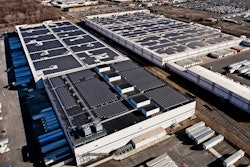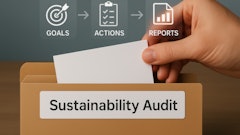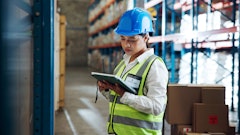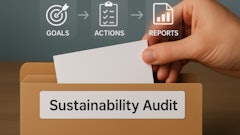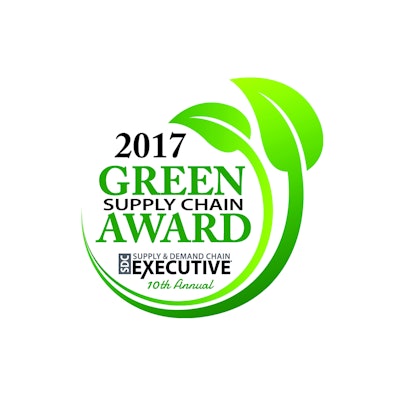
Many of the recipients of Supply & Demand Chain Executive's Green Supply Chain Award have been on the scene for some time, though a few new faces stand out on the annual list. No matter their track record, however, each of the companies recognized this year is making a positive impact not only on our environment, but their own bottom line. Those who made notable contributions in 2017 are listed below.
To see the complete list of Green Supply Chain Award recipients, please click here.
3GTMS’ transportation management solution (TMS) uses proprietary routing algorithms to help customers significantly increase the efficiency of their routes in terms of miles driven and emissions expelled. The technology’s ability to respond in real-time to dynamic routing factors ensures that customers are maximizing the efficiencies of their routes no matter what last-minute changes may occur. In addition, the technology simplifies pool distribution by allowing logistics planners (rather than engineers) to plan using real costs and service times. Pool distribution is typically a faster and “greener” way to deliver versus basic LTL because it moves freight the longest distance on a truck and avoids LTL carriers’ networks. The concept of pool distribution isn’t new, but 3GTMS’ technology is helping companies fully leverage their speed and fuel efficiencies, which in turn have led to cost savings and lower price points for their customers.
ALOM has partnered with a publicly-traded California gas and electric utility company to be the prime supplier of energy efficiency materials for low-income residents across 38 counties. The objective of the program is to reduce qualified low-income resident energy costs and improve their health and comfort by replacing inefficient, energy-wasting residential lighting, insulation and appliances with high-efficiency, energy-saving products at no cost to the resident. The fiscal goal of the program is to reduce energy costs/consumption amongst program participants by between 10 and 25 percent. It is estimated the program will upgrade 90,000 residences this year with energy-efficient products. At the time of publication, ALOM had sold approximately 350,000 LED bulbs into the program. By year end, they estimate sales of more than 700,000.
Arkieva recently teamed up with a leading organic cosmetics company, Lush Cosmetics, to improve demand, invenotry and finacial planning. The 21-year old vegetarian and organic hand-made cosmetics company differentiates itself in the marketplace by focusing on sustainable business practices and products that are manufactured using natural ingredients. The beauty products retailer has been experiencing year-over-year growth in various regions throughout North America, and as such, noticed the need for a robust planning tool that would give the planning team more flexibility, collaboration, and the ability to quickly and easily analyze data. The global cosmetic industry is highly competitve and volatile, making it critical for Arkieva to create a planning processes for Lush that was agile and nimble within the fast-moving industry.
The carbon emissions monitoring solution developed by Arviem enables exporters, importers, distributors and manufacturers of goods to understand what’s going on in their supply chains with regards to environmental impact, with granularity down to each individual shipment. This not only provides business intelligence, but also saves money while lowering the impact of transport on the environment. By implementing Arviem’s pay-as-you-use monitoring service, companies can monitor the carbon footprint of their logistics supply chain from day one without the burden of introducing new processes or investing in equipment or software.
BluJay’s Global Trade Network enables connected companies to collaborate and optimize efficiently, helping participants to reduce their carbon footprint and achieve their sustainability goals. Features such as gas emissions reporting are available within BluJay’s Advanced Reporting Suite, allowing clients to report on greenhouse gas emissions based on activity that has occurred within the TMS. Teams can report on the three main greenhouse gases: carbon dioxide, nitrous oxide and methane, as well as carbon dioxide equivalency, with the ability to fine-tune the emissions calculations for their supply chain and industry by configuring GHG emission factors.
Though not an obvious first thought, the reverse supply chain is definitely a place where retailers can support sustainability initiatives. This is particularly true when it comes to heavy use, damaged, salvage or other hard-to-sell items. Historically, these products went straight to a landfill, but these days, regardless of the condition of the returned products, there is a buyer base interested in facilitating either reuse or recycling—you just have to know how to tap into it. B-Stock provides clients access to a global base of vetted buyers interested in product across all condition codes, with many solely interested in recycling or repurposing salvage products for their own business needs. What’s more, because of B-Stock’s transparent B2B marketplace platform that connects sellers directly to buyers, their clients know exactly who is purchasing their product and for what purpose. Since inception, 3 million previously deemed excess items have been sold through B-Stock for reuse, resale or recycling.
Cass Information Systems utilization of technology and accelerated electronic interchange to obtain cost and processing efficiencies for their customers has resulted in a significant reduction of paper transactions in the areas of shipping documents, billing (freight invoices), payment transactions and information delivery. In addition, use of their centralized business intelligence to help manage the supply chain provides further positive environmental impact for customers. Cass’ annual EDI freight invoice percentage averages over 75 percent, with some Cass clients achieving an EDI invoicing percentage as high as 98 percent. In addition, more than 99 percent of Cass’ payments and remittance advices to carriers are electronic.
CBS is driving greener dollars into its supply chain by influencing spend at the business-unit level with the CBS Eye on the Environment program. The main driver this year is their “1, 2, 3, GREEN” campaign in partnership with three preferred vendors in the office category. In the inaugural year, the three-step campaign includes: 1) switching to double-sided printing, 2) choosing paper with recycled content, and 3) opting for ground shipping instead of air. For 2017, CBS is on-track to reduce more than 400 tons of carbon compared to 2016 and save $500,000 across the specific categories in the 1, 2, 3 GREEN program.
Sustainability is a core component of DSC Logistics’ supply chain strategy and part of their promise to customers. At DSC, a Sustainability Steering Committee oversees initiatives in a three-pronged approach, focused on opportunities in warehousing, transportation and network redesign. Working with representatives from each logistics center, the Steering Committee provides support for pilot projects and network-wide rollouts, sustainability education throughout the organization, and metrics and benchmarking efforts. Each year, DSC’s goals include: reduction of their waste stream, implementation of LEAN initiatives focused on reducing process steps and waste in the supply chain, and utilization of strategic supply chain modeling to reduce their logistics footprint.
Elemica’s integrated cloud-based logistics and transportation products help customers lower their carbon footprint and energy usage by optimizing shipments and loads. Shippers and carriers can collaborate on shipments to find capacity, avoid disruptions and penalties, and optimize loading/unloading times—which saves on fuel and lowers emissions. Additionally, Elemica helps food and beverage ingredient customers improve and achieve their measurable sustainability goals through the automation of manual processes that reduce their usage of paper, saving trees and other resources. Manual approaches are costly, time-consuming and fraught with errors. Automating business processes for sourcing, procurement, order management, inventory and logistics streamlines operations and boosts efficiencies. Electronic purchasing and sourcing, transportation optimization, and shipment visibility are many of the green solutions that Elemica provides to help customers lower costs while driving sustainability. Since 2004, Elemica has delivered approximately 210 million messages, equating to savings of 2,100 cubic meters of landfill space, 23 million liters of water used in paper production, 23,000 trees, and 257,000 kilograms of CO2 emissions.
John Galt’s Atlas Planning Suite was designed to streamline the S&OP process, taking full advantage of a comprehensive supply chain planning solution. An end-to-end value network provides visibility into the supply chain and allows customers to identify areas of opportunity and set ambitious goals for their environmental strategy by reducing waste in production and improving distribution efficiency. The benefits of the John Galt planning process further extend to the supplier and customer side, where the visibility to the entire supply chain gives all stakeholders the optimal conditions to minimize the impact of their own operations.
Transportation Insight's solutions combine analysis, intellectual capital and a hallmark Co-managed Logistics® approach to help clients achieve green supply chain results. Through optimal mode and carrier selection, comprehensive data management and logistics reporting, and predictive supply chain analytics, Transportation Insight helps to streamline supply chain networks through “what-if” scenario simulation based on historical data and future-casting to reduce energy costs, vehicle miles, fuel consumption and air pollution emissions.
Tyco Retail Solutions believes that environmental responsibility is not only good business, but also a social obligation. As part of that mission, Tyco Retail Solutions has incorporated sustainable practices in their supply chain processes to drive a competitive edge in today’s evolving retail landscape, including genuine Sensormatic® Electronic Article Surveillance (EAS) solutions. Their Sensormatic apparel tagging recirculation program recycled more than 1 billion tags in 2015, and has recycled nearly 7 billion since the program began in 2010, saving a total of 35 million pounds of plastic and reducing waste and costs for customers.
With the first commercially available UL-recognized lithium-ion battery pack in the lift truck industry, Yale is leading the way in power solutions designed to help customers reduce their carbon footprint and increase efficiency. The maintenance-free lithium-ion option, which requires no watering and contains no acid, lasts up to five times longer than traditional lead-acid batteries—drastically reducing battery replacements and landfill waste. Additionally, the lithium-ion option is suitable for opportunity charging on-site and in-transit because there is no off-gassing, negative memory effects or cooling time needed. Another green option from Yale is lift trucks powered by hydrogen fuel cells, which can help customers reduce greenhouse gas emissions and increase efficiency. With only water and heat as byproducts, hydrogen fuel cells produce zero harmful emissions, and require approximately three minutes to refuel, compared to between 15-30 minutes to replace a lead-acid battery.
Since 2005, Yusen Logistics (Americas) Inc. has been a member of the U.S. EPA SmartWay Transport Partnership and has consistently held the highest score possible: 1.25 “Excellent.” Beginning in 2008, Yusen began offering complete domestic carbon footprint analysis reporting to their customers, and in 2011, they expanded their capabilities to include global carbon footprint analysis reporting. In 2009, Yusen introduced Green Express, an expedited intermodal service that offers over-the-road speed and an environmentally-sound alternative to other service modes. In addition, Yusen Logistics offers a reverse logistics program that enables retailers and manufacturers to sustainably manage product returns, including a zero-landfill solution. The program enables customers to capture the maximum recovery value for reused goods and ensure that any recycling is done in an environmentally-friendly and responsible way. Services include consolidation and return to vendor, auction/secondary market sales, and recycling and recovery of used assets.






